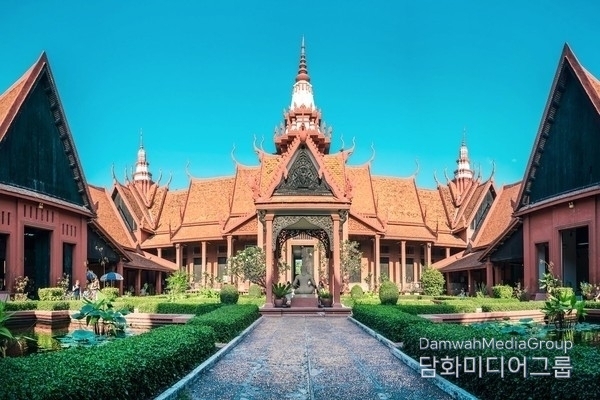By UN Journal Kayla Lee
Cambodia was once a country that welcomed foreigners with the ‘angelic smile’. But now, that smile has frozen cold. Behind the beautiful Angkor Wat and emerald coastline lurks the grip of criminal organizations targeting foreigners.
The murder of a Korean university student was not merely the tragedy of one individual, but the result of systematic neglect hidden behind the label of a ‘tourist nation’. A crime market disguised as tourism. Locally, alongside the tourism boom, ‘voice phishing camps’, ‘online gambling centers’, and ‘human trafficking brokerages’ have flourished.

They disguise themselves as legitimate businesses or confine foreign workers in resort or officetel-style facilities. They confiscate IDs and passports, resorting to assault or threats if resisted. This is the so-called “human trafficking industry disguised as tourism.” Recent reports from international human rights organizations indicate that at least 50 international criminal organizations are active in Cambodia, some of which have direct or indirect collusive relationships with police, military, and local officials.
It claims to be a “law-and-order state,” but in reality, it is a state that turns a blind eye to crime, or even profits from it. No one takes responsibility for the lives of foreign tourists. The Cambodian government tells the media it is “working to eradicate crime,” but behind those words, there are no concrete actions.
When the crime victim is a foreigner, cases are frequently delayed or ignored from the outset. Police tell victims to “wait for paperwork,” while diplomatic authorities backtrack, citing the need to “respect local procedures.” Ultimately, victims are left isolated, abandoned in a lawless zone where they can trust neither their home country nor the local authorities.

The Korean government is no exception. In this incident, travel advisories remained unchanged, and safety notices were posted belatedly. Tens of thousands of Koreans visit Cambodia annually, yet who guarantees their safety? The ‘Tourism Safety Agreement’ is merely a formality; actual rescue and support remain behind a wall of communication breakdown.
The international community must step in. Now is the time for pressure, not turning a blind eye. The international community must hold the Cambodian government clearly accountable for its practices of aiding or abetting criminal organizations within its borders. As long as foreigner abductions and detentions persist, Cambodia should no longer be promoted as a safe tourist destination.
The South Korean government must raise its travel advisory to reflect reality and establish a permanent protection center and immediate response system for Korean residents and tourists in Cambodia. Furthermore, it should strengthen the international crime response network through a consultative body with ASEAN member states. Under the guise of ‘tourism and diplomacy,’ the lives of its citizens must no longer be traded.
Behind the smile of tourism lies terror. Even now, someone boards a plane believing in the ‘Land of Smiles’. Yet behind that smile lurk abductions, threats, confinement, and violence. Behind the greeting “Welcome” lies the harsh reality that “if there's money to be made, even humans are traded.” If the Cambodian government truly wishes to regain the world's trust, it must stake the nation's fate on eradicating crime and ensuring foreigner safety before promoting tourism.
The Korean government, too, must be resolute before its citizens' lives, rather than remaining silent in the name of diplomacy. “Tourism without safety is complicity in crime; silent diplomacy is complicity in death.” The ‘Land of Smiles,’ built on the blood of tourists, must now heed the world's warning. Cambodia's tourism industry is no longer about tourism; it is a test of human rights.




